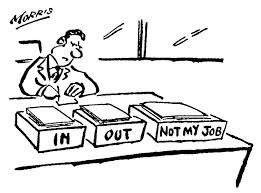Many years ago, I attended a meeting for state officials at the US Department of Education on fixing the inequitable distribution of teachers. There I heard an official from my home state of Maryland unabashedly tell his colleagues that not only was it not the state’s job to address equitable distribution, ”doing so would mean that I would have to give extra attention to kids who are poor, that my job as a state official means treating all kids in the state the same, regardless of income.’

Fast forward a few years. The Center for American Progress just finished looking at the new teacher eval data in two states we normally like to think are ahead of the curve, Louisiana and Massachusetts, to find out if kids who are poor are more likely to have a teacher who is rated ineffective. Turns out they are twice as likely.
I doubt anyone is all that surprised about that finding, though it’s useful to have it quantified.
What is surprising is how little movement over the years we may have made with state departments of education on dealing with this issue. In the Times-Picayune (LA), a Louisiana official essentially expressed as much indifference to this problem as his Maryland colleague–while also relying on an appalling ignorance of statistics to bolster his case: “It could be that schools in which principals have particularly high expectations for teachers show up in the study as having more ineffective teachers than do schools in which the principal does not have such high expectations, simply because of the difference in the principals’ expectations.”
It’s past time to take off the blinders, states. This is a problem and it falls on you, working with your school districts, to solve.
